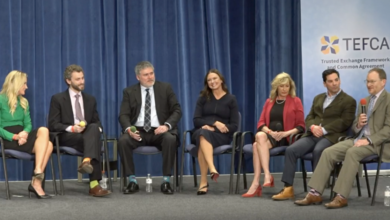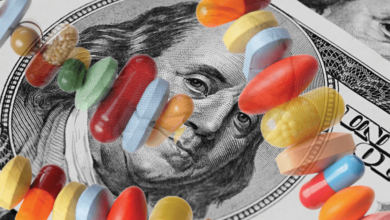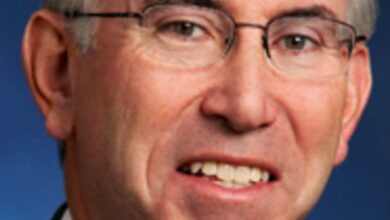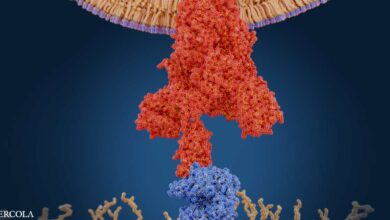Where generative AI can make headway in healthcare
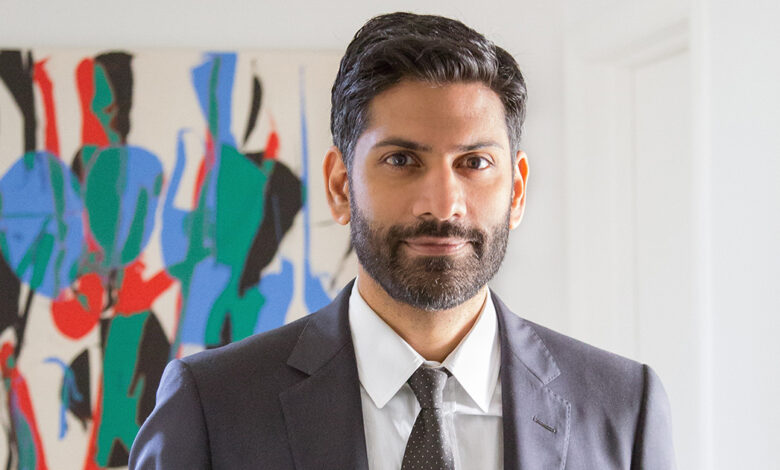

Dr. Shiv Rao is a practicing cardiologist and CEO of Abridge, a vendor of generative AI-powered clinical documentation technology. He built that voice-to-text technology, so he knows about the ups and downs of generative AI, the type behind the popular ChatGPT application.
Healthcare IT News sat down with Rao to talk AI and generative AI, and the application of the technologies in healthcare.
Specifically, we discussed with the doctor the enormous demands of manual documentation and coding, and the difference between automation and AI-powered automation helping with this problem.
We also talked about the pros and cons of generative AI in healthcare, how AI can effectively coexist with doctors in a way that benefits patients without running past any guardrails, and where Rao sees generative AI in healthcare in five years.
Q. Research in the Journal of General Internal Medicine shows manual documentation and coding can lead to “27-hour workdays.” What’s the difference between automation helping with this problem and AI-powered automation helping?
A. I approached the founding of Abridge first as a cardiologist and, of course, also as a consumer of healthcare who understood that listening, empathy and real dialogue are the heart of effective care.
I had also been an executive in the innovation arm of a major health system, where I saw researchers and software engineers use machine learning in new ways. It was a completely different approach than the medical automation systems we had come to depend on but loved to hate.
When I see patients, I have to be cognizant of the three stakeholders I need to serve for every encounter. I need to write notes for care team communication, structure data for the revenue cycle teams to help us keep the lights on and be mindful of patients reading my notes on the portal. That is a huge amount of cognitive overhead.
Years ago, we saw the potential in using AI and large language models to handle these tasks for clinicians and dramatically improve the experience for doctors and patients. We believed that, if we could provide a magnitude greater speed and lower cost, turning patient conversation into highly professional notes with quality and accuracy, that we could refocus our profession on what matters most – being present and listening.
We could all but eliminate the administrative load that has eroded the quality of doctor-patient conversations and has famously broken the spirit of many clinicians.
Q. You’re a fan of generative AI and have even built note-taking technology using this form of AI. What are the pros and cons of generative AI in healthcare?
A. There are so many mundane but essential administrative and clerical tasks that clog up a clinician’s workday. A computer screen is actively competing for our attention. It’s the part of the industry we – as physicians – were never trained for. But, years of “we’ve always done it that way” created this anchor on us all, leading to burnout and driving thousands out of the industry during the pandemic.
Processes vastly simplified and improved by generative AI can be a powerful recruitment tool to bring a new generation into the healthcare industry and patient care without arcane and difficult processes in their way. By eliminating needless note-taking and long nights of billing and coding for reimbursement purposes, doctors can get back to solving the real issues of patient care.
The biggest challenge will be building trust and providing a level of transparency that we as clinicians can depend on. This is an issue in every area for AI applications. In healthcare, black boxes are a really hard sell. Physicians are unlikely to give up their agency in decision-making and establishing ground truth with the patient.
For example, with Abridge we thought it was critical to provide that functionality, so every piece of content in an AI-generated summary could map back to the conversation. If you hit ChatGPT with a question, you’ll get an answer, but you’re not going to know where it came from. It’s not going to show you its sources, and if it does, those will likely be across a wide spectrum of quality – or entirely made up.
Building trust with this technology should be the goal. Trust has to be built in if it’s going to be embraced as a tool in healthcare. I think that then turns it into an even more powerful technological differentiator that makes the professional better and improves the doctor-patient relationship.
Q. How can AI effectively coexist with doctors in a way that benefits patients without running past any guardrails?
A. Healthcare is human. It’s about conversations. In some ways, this technology could re-ground us in what our grandparents may have experienced when people had the benefit of more time and attention in the doctor-patient relationship.
The dialogue between clinicians and patients remains essential. It drives healthcare upstream of all the diagnostics and therapeutics that we order. It’s upstream of all of the coding, the risk adjustment, the clinical trials and the care management.
Our opportunity is not just about significantly enhancing the profession and improving outcomes and productivity of the healthcare system. It’s also about the experience of patients and their family members.
Every one of us would do well to better understand and follow through on our health conversations. They can be so hard to absorb or fully process in the moment. There’s great research out of Dartmouth that suggests that people forget up to 80% of what they’ve heard from a doctor or nurse. My own experience suggests that’s probably true.
So, the opportunity is to capture the medical value of these conversations to improve our health, while also providing a deeper understanding and ground truth that builds trust and strengthens that critical relationship with our care providers.
Q. Where do you see generative AI in healthcare in five years?
A. In the next few years, I believe the industry will begin to embrace generative AI-based systems that assist, augment and automate processes that have historically undermined the healthcare experience and fueled unsustainable costs.
I don’t think this will be a choice as much as an imperative. This will happen wherever AI can be introduced with trust and transparency, where the clinician is in the loop, doing the quality check and making the ultimate decisions.
In physician note-taking, I think it’s possible that we can transform the profession in a few years, creating a lot of value for patients, physicians and health systems. In a sense, we are among the low-hanging fruit of healthcare AI.
And from there we will move up the stack in terms of how notes can help health systems whose margins are under attack. If we can automate the process of coding within the physician note to the EHR, we can both improve the accuracy in capturing what services are provided and treatments are indicated, and reduce the burden on physicians, who are perhaps the most costly admins on the planet. This will also help with accountability in areas like Medicare.
We can leverage note content to inform and prompt patients in new ways that ensure better follow-through and more engagement in their health journey over time.
Longer term, I believe generative AI will make a massive contribution to clinical decision-making, how we train and utilize clinicians, and how we drive better healthcare policy. We will have a much more complete and real-time understanding of patients, the efficacy of treatments and the best ways to help optimize the health of populations that share important characteristics.
But this will only be built on a foundation of trust and transparency. It’s critical to continue to work on frameworks and standards that build trust in the technology, the profession and the industry.
Follow Bill’s HIT coverage on LinkedIn: Bill Siwicki
Email him: [email protected]
Healthcare IT News is a HIMSS Media publication.
